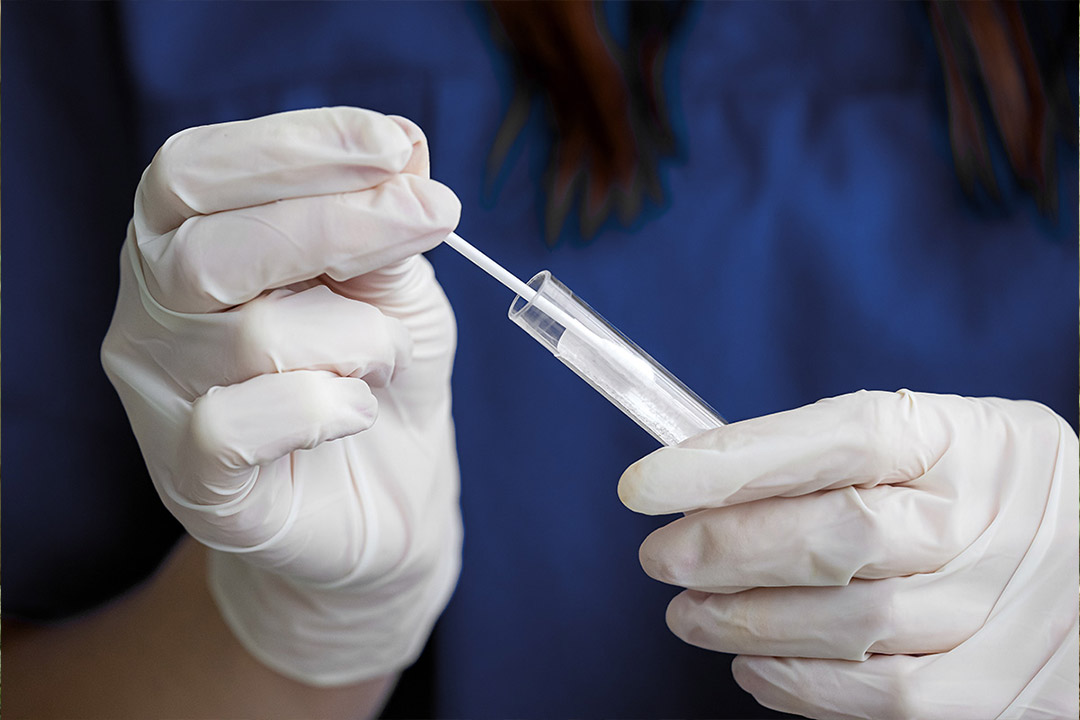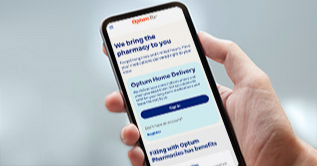What is an infectious disease?
Infectious disease refers to a wide range of illnesses that humans can contract from different sources. For example: insect bites, eating or drinking unsafe food and water, or contact with another infected person.
Most infectious diseases are treatable with proper medical care, including antibiotics and other methods. Following good hygiene practices can prevent or reduce the risk of contracting many infectious diseases.
Types of infectious diseases
Common types of infectious diseases include:
- Chronic infections, including osteomyelitis
- Fevers
- Hepatitis A, B and C
- HIV and other immunodeficiency and viral diseases
- Lyme disease
- Sexually transmitted infections (STIs)
Treatment of infectious diseases
Infectious disease treatment options may include:
- Inpatient and outpatient consultation
- Medications
- Outpatient IV antibiotic therapy
- Travel medicine, including vaccines and other shots
Infectious disease FAQ
Not all infectious diseases are contagious. There are two main types.
Infectious disease
This is caused by pathogens (like bacteria, viruses, fungi, or parasites) that invade and multiply in the body, but does not spread from person to person.
Examples of infectious diseases that are not contagious:
- Legionnaires’ disease: Spread through contaminated water systems
- Lyme disease: Spread by tick bites
- Malaria: Transmitted by mosquitoes
- Tetanus: Caused by bacteria in soil entering wounds
Contagious disease
This is a subset of infectious diseases that can be spread directly from person to person.
Examples of infectious diseases that are contagious:
- Chickenpox
- COVID-19
- Hepatitis A and B: Spread through close contact or bodily fluids
- Influenza (flu)
- Measles
- Tuberculosis
There are many types of infectious diseases, with different symptoms depending on the disease and the strength of your immune system.
Some common symptoms include:
- Coughing
- Diarrhea
- Fatigue
- Fever
- Muscle aches
Most infections can be treated by a prescription of oral medication. Optum provides a wide array of oral medications as well as alternative treatments and additional services.
Common treatments include:
- Antibiotics
- Antifungals
- Antiparasitics
- Antivirals
- Home infusion care
- Infectious disease consultations at doctors’ offices and hospitals
- Travel medicine, including expert advice on recommended vaccines and shots
You can get an infectious disease in a variety of ways, like physical contact with an infected person, a parasite or an exposed open wound. Preventing infectious diseases focuses on hygiene, which makes it difficult for the organism to spread.
- Avoid insect bites by covering up and using insect repellent.
- Avoid people who are coughing or sneezing. If you must cough or sneeze, do so in your elbow to limit the spread of any infections.
- Drink or eat food only from trusted sources.
- Keep all open wounds clean and covered.
- Keep your hands away from your mouth and nose.
- Maintain a hygienic, sanitary household, with special attention to the kitchen and bathrooms.
- Stay up to date on your vaccinations to reduce the risk of infections.
- Wash your hands frequently and thoroughly after coming in contact with someone who is ill, animals or animal droppings.
Optum specialists are highly skilled in treating a wide range of infectious diseases. We specialize in care for, but not limited to:
- Bacterial infections
- Cellulitis (skin infection)
- Chronic (long-term) infections
- Communicable diseases (illnesses that can be caught from people, animals or objects)
- COVID-19
- HIV exposure (a virus that attacks the white blood cells that fight infection)
- Lyme disease
- Osteomyelitis (a bone infection)
- Parasitic diseases (illness caused by an organism living in the body — for example, tapeworm)
- Recurrent urinary tract infections (infections of the parts of the body that handle urine)
- Tuberculosis (a lung infection caused by bacteria)
- Wounds
At Optum, our specialists focus on infection prevention and antimicrobial stewardship. This means our infectious disease doctors are committed to developing strategies to reduce the risk of infection after surgical procedures and in people who are hospitalized.
In addition, we are experts in the use of antimicrobials, which reduces the chance of developing drug resistance.
Hepatitis is a serious infectious disease that affects the liver.** There are 3 main types that are transmitted differently:
Hepatitis A
- Cause: Hepatitis A virus (HAV)
- Transmission: Fecal-oral route through contaminated food, water or close contact with an infected person
- Infectiousness: Very contagious, especially in areas with poor sanitation
- Symptoms: Fatigue, nausea, abdominal pain, jaundice (yellowing of skin/eyes), dark urine
- Treatment: Usually resolves on its own; supportive care
- Prevention: Vaccine available
Hepatitis B
- Cause: Hepatitis B virus (HBV)
- Transmission: Blood, sexual contact, mother-to-child during birth
- Infectiousness: Highly contagious; can survive outside the body for up to 7 days
- Symptoms: Similar to Hepatitis A, but can become chronic
- Complications: Cirrhosis, liver cancer, liver failure
- Treatment: Antiviral medications for chronic cases
- Prevention: Vaccine available
Hepatitis C
- Cause: Hepatitis C virus (HCV)
- Transmission: Blood-to-blood contact (for example from sharing needles)
- Infectiousness: Less contagious than A or B, but still significant
- Symptoms: Often asymptomatic until liver damage occurs
- Complications: Chronic infection, cirrhosis, liver cancer
- Treatment: Curable with direct-acting antiviral medications
- Prevention: No vaccine, but avoid risky exposures
Lyme disease is an infectious disease caused by bacteria transmitted to humans through the bite of infected deer ticks. Humans typically get Lyme disease from tick bites when spending time in grassy, brushy or wooded areas.
Most people recover fully, but some may experience lingering symptoms known as post-treatment Lyme disease syndrome (PTLDS).
Lyme disease has three stages, and symptoms can vary widely:
Early localized stage (3–30 days after bite)
- Bull’s-eye rash (erythema migrans): red ring with a clear center
- Fatigue
- Fever
- Headache
- Muscle and joint aches
- Swollen lymph nodes
Early disseminated stage (weeks to months)
- Facial paralysis (Bell’s palsy)
- Heart palpitations or irregular heartbeat
- Multiple rashes
- Neck stiffness
- Pain or numbness in limbs
- Vision problems
Late disseminated stage (months to years)
- Arthritis, especially in large joints like knees
- Chronic fatigue
- Neurological issues like memory problems and nerve pain
Lyme disease is treated with different antibiotics depending on the stage of the disease:
- Amoxicillin, cefuroxime or doxycycline for early stages
- IV antibiotics for severe or late-stage cases
Pneumonia is an infectious lung disease caused by various types of microorganisms, including:
- Bacteria, including Streptococcus pneumoniae and Mycoplasma pneumoniae
- Fungi, like Pneumocystis jirovecii or Cryptococcus
- Viruses, such as COVID-19, influenza and RSV
These pathogens infect the air sacs in the lungs, causing them to fill with fluid or pus, which leads to symptoms like chills, cough, fever and trouble breathing.
Pneumonia can be contagious, especially when caused by bacteria or viruses. It spreads through respiratory droplets when an infected person coughs or sneezes. However, not all types are equally contagious — fungal pneumonia, for example, is less likely to spread between people.
Pneumonia treatments vary depending on the cause, severity and individual health factors. Treatments aim to eliminate infection, relieve symptoms and support lung function. Some common treatments include:
- Antibiotics
- Antifungal medications
- Antiviral drugs
- Cough medicine
- Fever reducers and pain relievers
- Glucocorticoids like hydrocortisone
- Supportive therapies like oxygen, breathing exercises, and IV fluids
Helpful resources

Article
7 reasons to make time for your flu vaccine
It’s important to get your annual flu vaccine to help protect you and vulnerable people around you from the virus and its complications.

Article
Your guide to tick-borne diseases
Learn about different tick-borne diseases, how to prevent tick bites and what to do if you spot a tick on your body.

Article
STD tests: Everything you need to know
If you're sexually active, it's important to get tested often for sexually transmitted diseases (STDs) and infections (STIs).

Article
Walking pneumonia vs. the common cold
Walking pneumonia is a mild lung infection similar to a cold, but unlike a cold, it must be treated or it can lead to serious health issues.
*Infectious disease services vary by location. Check with your doctor’s office or health plan for specific information.
**CDC. Viral Hepatitis Basics. Published January 31, 2025. Accessed October 14, 2025.
Optum arranges for or provides medical and other clinical services in accordance with laws in each state it operates. Physicians or providers referenced on this website are to those who are either part of independent practices or to those medical practices managed by or owned, where permitted, by Optum. In all circumstances, physicians and other licensed professionals have complete authority for all medical decision-making and patient care. Optum does not determine or set the methods, standards, or conduct of the practice of medicine or health care provided by any of the practices or their physicians or other licensed professionals.




